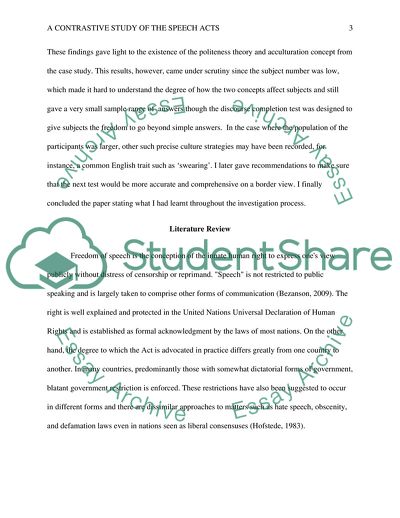Cite this document
(Speech Acts of Refusal Research Paper Example | Topics and Well Written Essays - 3000 words, n.d.)
Speech Acts of Refusal Research Paper Example | Topics and Well Written Essays - 3000 words. https://studentshare.org/humanitarian/1855294-a-contrastive-study-of-the-speech-acts-of-refusal-between-british-residents-in-saudi-arabia-and-british-residents-in-uk
Speech Acts of Refusal Research Paper Example | Topics and Well Written Essays - 3000 words. https://studentshare.org/humanitarian/1855294-a-contrastive-study-of-the-speech-acts-of-refusal-between-british-residents-in-saudi-arabia-and-british-residents-in-uk
(Speech Acts of Refusal Research Paper Example | Topics and Well Written Essays - 3000 Words)
Speech Acts of Refusal Research Paper Example | Topics and Well Written Essays - 3000 Words. https://studentshare.org/humanitarian/1855294-a-contrastive-study-of-the-speech-acts-of-refusal-between-british-residents-in-saudi-arabia-and-british-residents-in-uk.
Speech Acts of Refusal Research Paper Example | Topics and Well Written Essays - 3000 Words. https://studentshare.org/humanitarian/1855294-a-contrastive-study-of-the-speech-acts-of-refusal-between-british-residents-in-saudi-arabia-and-british-residents-in-uk.
“Speech Acts of Refusal Research Paper Example | Topics and Well Written Essays - 3000 Words”. https://studentshare.org/humanitarian/1855294-a-contrastive-study-of-the-speech-acts-of-refusal-between-british-residents-in-saudi-arabia-and-british-residents-in-uk.


